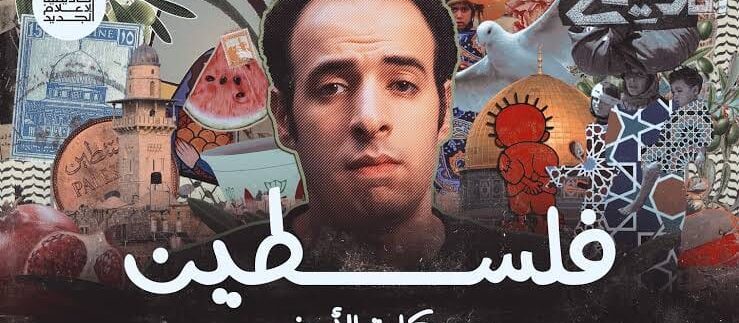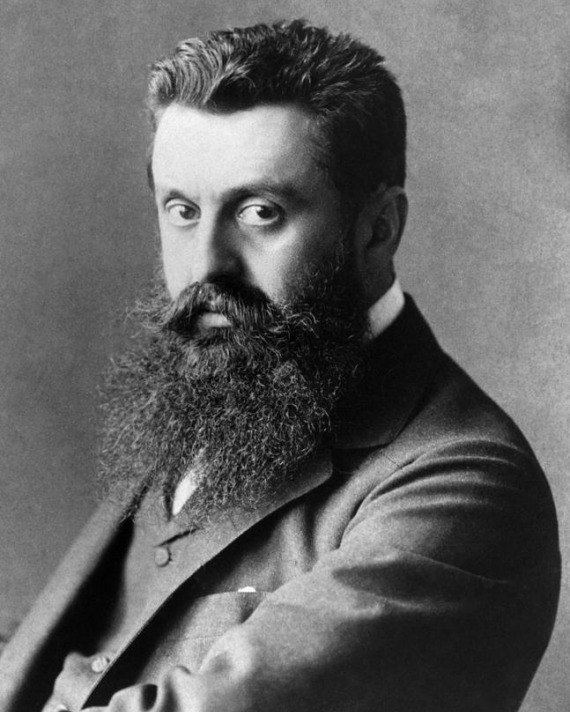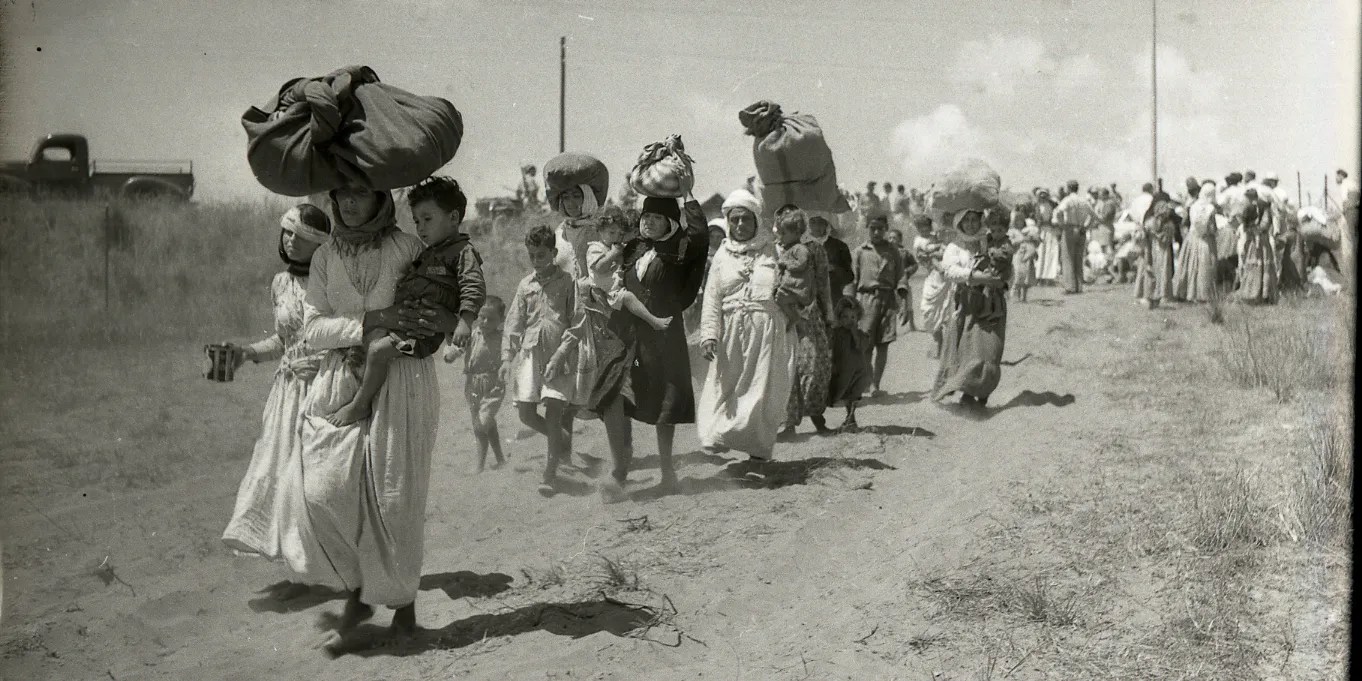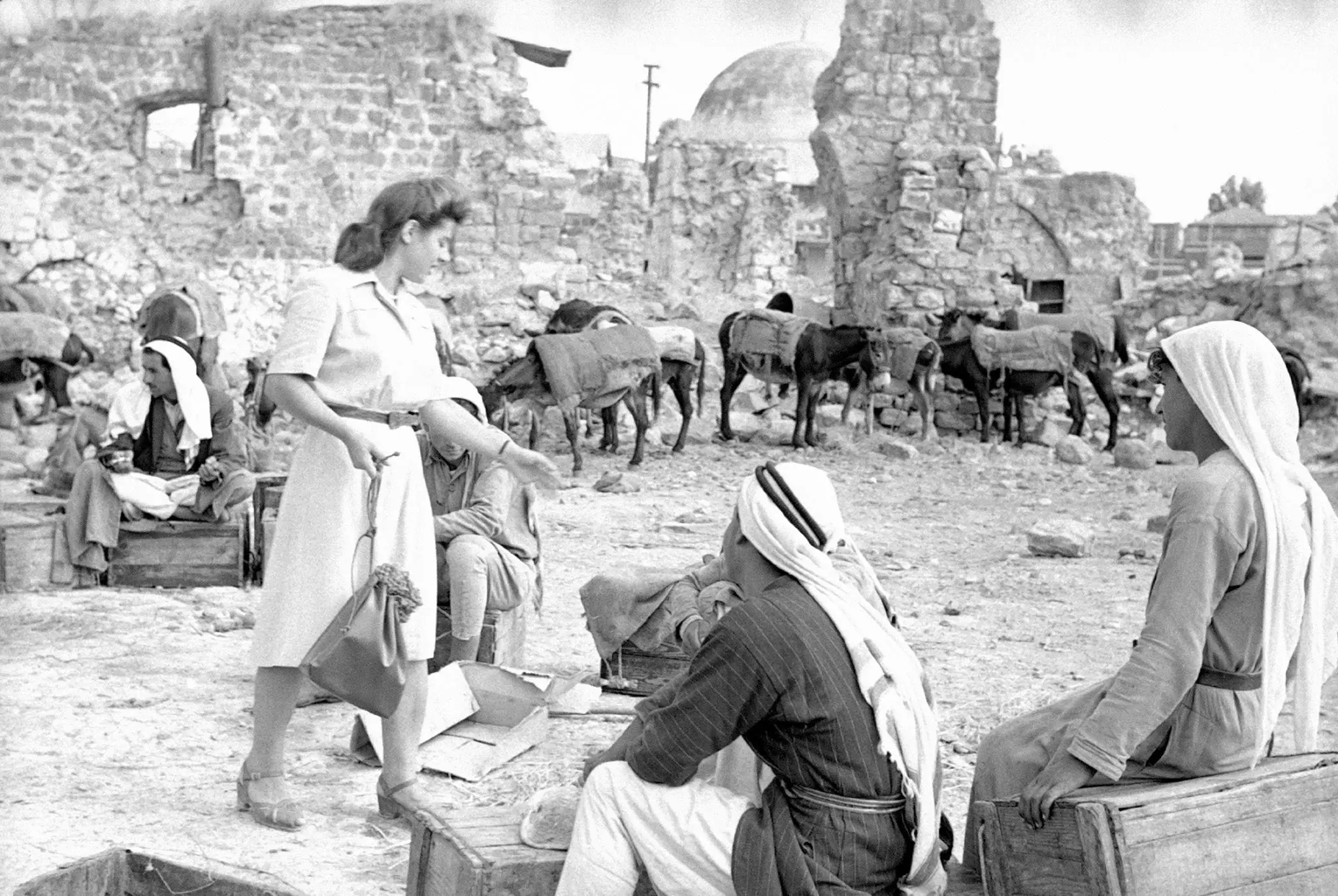
Farah Fahim
The Egyptian sensation Ahmed el Ghandour strikes again with his viral hour-long video explaining “The Tale Of A Land Called Palestine”. The long-awaited video broke down the evolution of the conflict over the years and explains why the story, as told by Israel, seems deceivingly believable. ElDaheeh’s captivating discourse is backed by extensive research and evidence, while simplifying matters for audiences. His page has taken some of the most complicated topics and made them digestible for the public, playing a vital role in educating a nation on matters of the world and life with a comedic twist. The video is broken down into several parts: an introduction followed by six debunked myths.
Introduction: Tantura
Palestinians fleeing Tanture, via The Intercept
The introduction of the video sheds light on one of many stories of Palestinian towns that are lying beneath Israeli settlements today, hiding mass graves underneath. El Tantoura town is an example of that and is represented heavily in the documentary Al Tantoura by Alan Schwartz.
Tantoura becomes a metaphor for the Jewish state, a seemingly Western metropolitan city built on mass graves turned into parking lots.
Myth 1 “Systemic Persecution of ALL Jews”
El Ghandour breaks down the myth that all Jews were a separate people rather than part of the communities they lived in. He brings up the examples of Jewish communities in Morocco, Egypt, and Europe. He traces the background of Jewish communities of the Middle East and North Africa as living among local communities, not only as part of society but as active contributors. He placed this in contrast to Jews residing in secluded ghettos in parts of Europe, far away from society. With that being said, he points out that despite this, some Jewish communities were integrated into European civil society while living in enclosed communities.
Myth 2 “Judaism Equals Zionism”

Theodor Herzl, via Lapham Quarterly
El Ghandour discusses Theodor Herzl’s impact as one of the founding fathers of Zionism. Initially a mere idea having emerged in the 16th century, Zionism had no true backing until the 19th century. Herzl advances that idea, developing it into an organised ideology and movement, and writes “Der Judenstaat” (“The Jewish State”) as a manual to Zionism. It places the vitality to establish an independent state for the Jewish people, particularly the Jews of Europe, as the only escape from persecution. It is a movement utterly independent of religion.
Myth 3 “A Land Without a People for a People Without a Land”
Tiberias, Palestina circa 1930, via Palestine Remembered
El Daheeh dissects how this popular phrase could mean many things but is ultimately a myth. One of its potential meanings is the Western world’s view of the East as a land of bedouins and endless desert, mimicking the Tales of a Thousand and One Nights and giving the illusion of an exotic, uninhabited world. A second option discusses the possibility of the intent to turn it into a land with no people.
Myth 4 “Britain the Enemy”

British troops via History Extra
El Daheeh continues by explaining how Zionist settlements finally bit the hand that fed them by rebelling against Britain in its reluctance to send more Jewish refugees to become settlers. By defending Palestinians and recommending that they be allowed back from their exile, Britain becomes the enemy and is eventually driven out of the region, while its replacement, the United States, becomes a loyal Israeli ally.
Myth 5 “David and Goliath”
El Daheeh explains how Israel has managed to secure effective propaganda tools. Upon Israel’s declaration of independence and statehood, surrounding Arab armies gathered to fight back. Israel was painted as a weak victim, as in the Biblical tale of David, in Western media.
Myth 6 “The Only Democracy in the Middle East”
Finally, El Daheeh discusses recent developments, particularly the harsh conditions imposed on Palestinians. These conditions include extreme restrictions on Palestinians’ movement throughout the country through checkpoints, as well as strategic placement of settlements within Palestinian neighbourhoods in the West Bank, and restrictions on food, water, and electricity – particularly in Gaza – long before October 7th 2023.

The informative video quickly got over 10 million views in the first three days since it was posted by New Media Academy Life and continues to grow increasingly popular. Ahmed El Ghandour’s quick wit and eloquent delivery swiftly manages to dissect the thousand-year-old history and the many players that led to the establishment of the Hebrew state and its unwavering Western support. The video was shared countless times on social media, receiving praise on every post and urging the creator to add English subtitles – which he eventually did –to reach a wider Western audience that may not be as educated on the subject. All sources and quotes that El Daheeh uses are Israeli sources – whether Israeli state sources or Israeli professors and experts.
recommended
 Restaurants
Restaurants
Cairo's Ramen Revival: 5 Must-Try Bowls Around the City
 Cafés
Cafés





